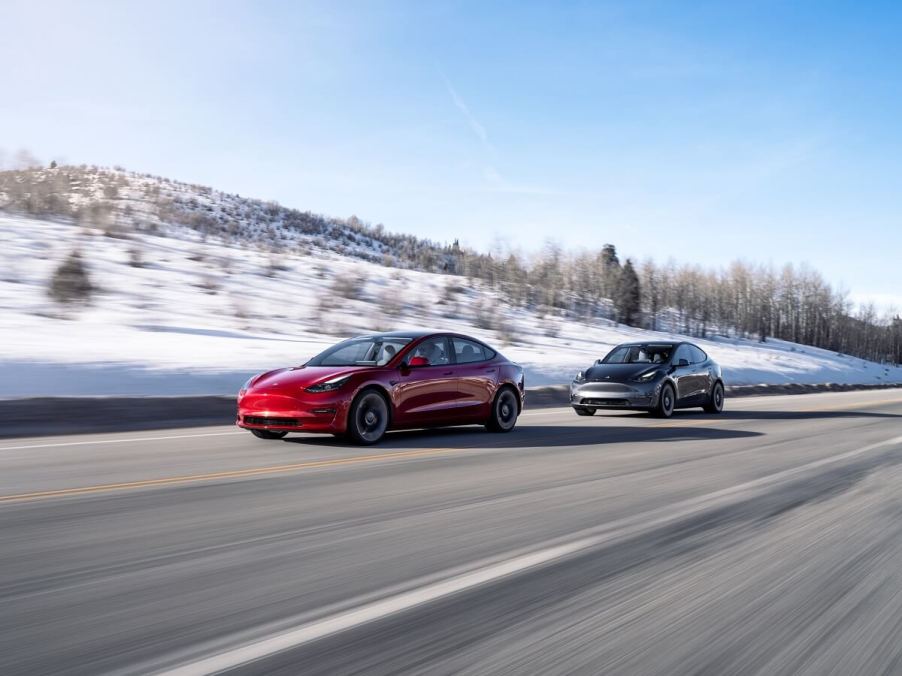
Tesla Now Beats Ford in Brand Loyalty, According to S&P Global Mobility
Despite a challenging year, Tesla brand loyalty has now surpassed Ford, marking another big win for the electric automaker. In the S&P Global Automotive Loyalty Awards, Tesla becomes the first all-electric brand to top the charts. There are several contributing factors that have pushed Tesla to the top of the pile, including an ongoing shift in consumer behavior and parts shortages.

Brand loyalty is down across the board
In general, the last few years have been rough for consumer retention. Loyalty has consistently fallen since the start of the pandemic. The trend comes as a result of global supply chain shortages and low vehicle inventory. Previously brand-loyal consumers began looking elsewhere rather than wait months for a new vehicle. Overall, the result is a 4% drop in loyalty among legacy automakers.
Reduced purchase incentives and elevated trade-in values further contribute to consumers’ wandering eyes. Customers were much more likely to shop with a dealership offering thousands more for their trade or better financing offers, even if that meant switching to a new make.
The rise of Tesla

In addition, the rise of EV subsidies and the growing reputation of Tesla as a luxury brand have seen the electric vehicle company gain market share. This, despite challenges regarding build quality, autonomous technology, and supply chain issues of its own. While Tesla CEO Elon Musk has been under fire for various reasons, the brand has retained an ability to deliver better customer experiences than in previous years.
In addition, Tesla’s improving rate of delivery means that buyers of current models are getting their cars faster. That’s a recipe for loyalty in a market where buying a new car can take weeks or months.
The brand’s network of superchargers makes EV adoption easier than with other brands. Of course, universal EV chargers have faced their share of challenges. However, the Tesla Supercharger network is seen as a strong point of the brands.
Finally, the direct-to-consumer model cuts out the traditional dealership experience that can leave many customers frustrated. In summation, Tesla can retain its customers by showing them an easier shopping experience, an easier EV adoption experience, and comfortable ride.
General Motors retains an edge

While Ford has lost its individual make edge over Tesla, rival General Motors maintains its lead in manufacturer loyalty, according to S&P Global. With brands including Chevrolet, Cadillac, GMC, and Buick under its banner, GM customers have more options available under the same umbrella. Only Stellantis, with Dodge, Chrysler, Jeep, RAM, Alfa Romeo, and Fiat has more. However, those brands offer much more differentiated experiences than are found in the GM assortment of makes.
Why does brand loyalty matter?
Brand loyalty is seen as a sign of long-term health, especially for a newer company. That Tesla has gained both retention and conquest percentage over its competition means that the EV automaker is now a true player in the automotive space.
Eventually, the rise of EVs from other brands may pose a challenge to Tesla’s current trajectory. For now though, the brand is doing what it needs to do in order to get ahead.




